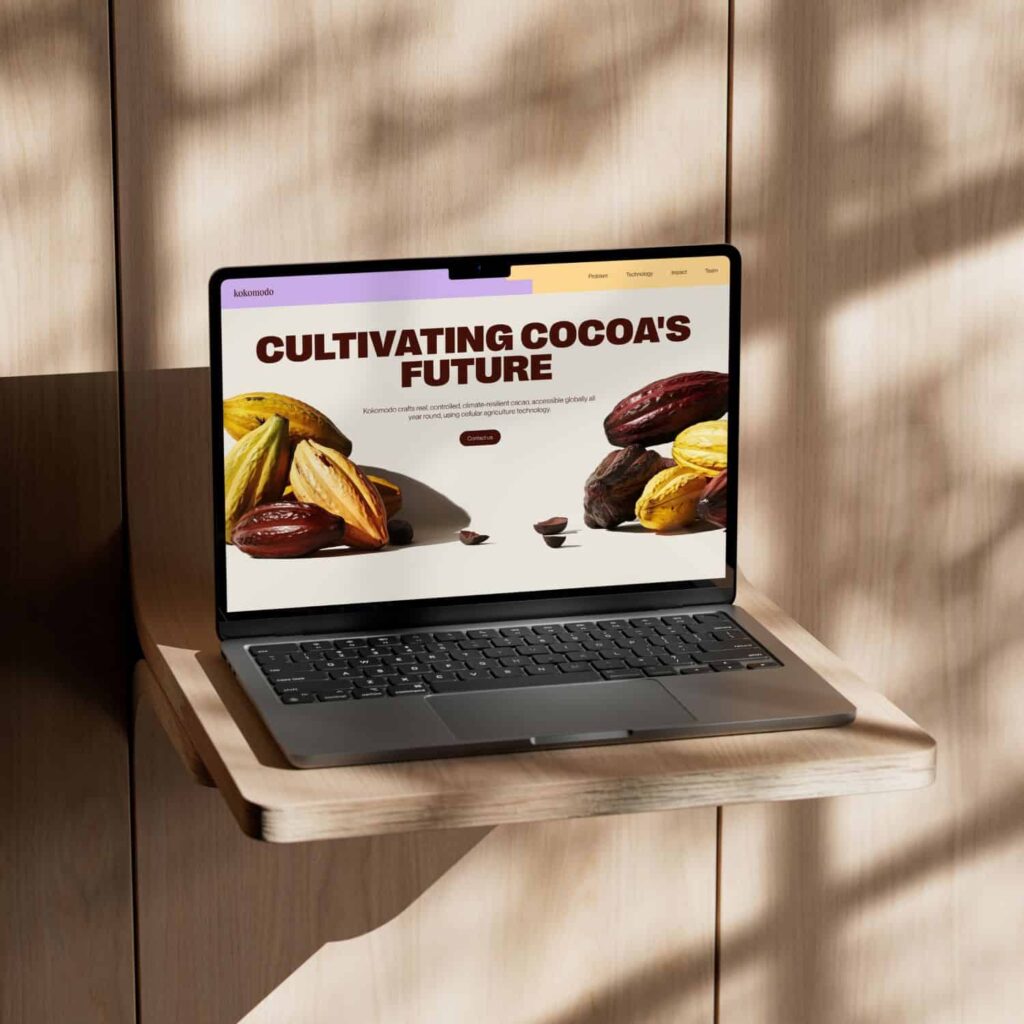
© Kokomodo
Climate change poses a significant threat to the future supply of cacao (the unprocessed version of cocoa), with the majority of farmland predicted to become unfit for production by 2050.
Recent severe weather events have negatively impacted cacao harvests in Ivory Coast and Ghana, the world’s biggest producers, causing significant shortages and high prices.
But Kokomodo, a startup leveraging plant cell technology to “cultivate cocoa’s future” aims to ensure a stable, year-round cacao supply of sustainable premium cocoa.
To do so, Kokomodo is developing a platform to produce cacao locally with cells and advanced bioreactors independently from land (deforestation), climate, and tropical regions. The startup, which operates a pilot-scale lab in Israel, not exactly a tropical country with cacao bean plantations, has already developed its first product: a cell-cultivated cocoa powder.
 (L)Tal Govrin and Dario Breitel © Kokomodo
(L)Tal Govrin and Dario Breitel © Kokomodo “By localizing production, we minimize carbon emissions from transport, a considerable sustainability concern within the industry. We also tackle economic issues such as supply chain delays, ensuring fresher, higher-quality products,” states the company.
Health-boosting cocoa
The startup, cofounded by Tal Govrin in 2024, is a joint venture between The Kitchen FoodTech Huband Tel Aviv-based Plantae Bioscience. It recently emerged from stealth after raising $750,000 from The Kitchen Hub and the Israel Innovation Authority to fuel its growth and accelerate its mission to revolutionize the cocoa industry with sustainable cacao. The startup is a 2024 EIT Food Accelerator Network participant.
Kokomodo’s cell-cultivating cacao process involves carefully selecting cells from premium cacao beans from Central and Latin America and growing them in bioreactors, nurtured with tailored growth media containing sugars, vitamins, and minerals. When the cells have grown to form a biomass, they are harvested and processed into a powder or other formats depending on the food application.
 © Kokomodo
© Kokomodo Kokomodo claims that its cocoa matches the aroma, flavors, and sweetness of conventional cacao while offering its health benefits. Since the company controls the cells and the process, it can enhance the nutritional value of the final product, for example, more or fewer lipids, antioxidants, or proteins, to offer improved cacao ingredients to the cosmetic, nutraceutical, or chocolate confectionery industries. Among the company’s goals for the coming years is to offer high-quality cell-based cacao ingredients at prices similar to premium agriculture cacao.
“Kokomodo was born from a profound passion for preserving the supply of cocoa. Our cellular agriculture technology ensures a steady flow of premium, health-boosting cocoa, aligning consumer enjoyment with global responsibility,” Govrin told EIT Food Accelerator Network.
Other companies are also harnessing the sustainable solutions that plant cell technology offers to produce saffron, coffee, vanilla, and cotton.


